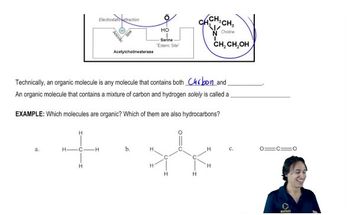Textbook Question
Show how you would synthesize each compound, beginning with acetylene and any necessary additional reagents
(a)

 Verified step by step guidance
Verified step by step guidance Verified video answer for a similar problem:
Verified video answer for a similar problem:



 3:19m
3:19mMaster Sodium Alkynide Alkylation with a bite sized video explanation from Johnny
Start learning